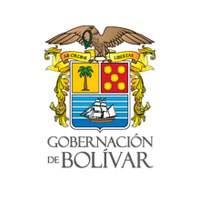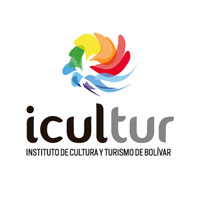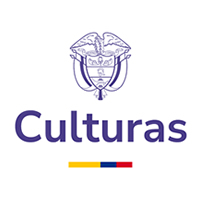Hay Festival Cartagena 2025
The twentieth edition of Hay Festival Cartagena de Indias will be held from 30 January to 2 February. In this page you can find the events in the general programme as well as Hay Festival Joven activities for university audiences, Hay Festival Comunitario sessions which took place in different areas of Cartagena, Reading Clubs and Talento Editorial.
For any inquirie, please contact tickets@hayfestival.org and contacto@hayfestival.org. Consulta el programa en PDF.
Event 26
Leila Guerriero in conversation with Ana Cristina Restrepo
Centro de Convenciones (Auditorio Getsemaní)
Read moreThe writer and journalist Leila Guerriero (Argentina) presents her book La llamada, a profile of the Argentine Silvia Labayru, a member of the armed group Montoneros and who in 1976 was kidnapped, tortured and raped at the Escuela de Mecánica la Armada clandestine detention centre, where thousands of people were held and murdered during the dictatorship. Labayru survived the experience, and was interviewed by Guerriero, beginning in 2021, while waiting for the outcome of the first trial for crimes of sexual violence committed against women who disappeared during the dictatorship, at which Labayru was a plaintiff. In conversation with Ana Cristina Restrepo.
Sponsored by Promigas

Event 27
Jon Lee Anderson in conversation with Leonard Benardo
South to North conversations
Centro de Convenciones (Salón Barahona)
Read moreJon Lee Anderson (United States) is a world renowned war reporter. As a staff writer for the New Yorker, he has reported all around the globe, covering war zones, coups d'etat, natural disasters and has profiled world leaders. He is the author of many books, including the most comprehensive biography of Che Guevara, and would be presenting He decidido declararme marxista, his latest book, that compiles his most celebrated reportage. In conversation with Leonard Benardo.
Simultaneous interpretation from English to Spanish available
With the support of Open Society Foundations

Event 28
Nicola Lagioia in conversation with Camila Osorio
Teatro Adolfo Mejía
Read moreNicola Lagioia (Italy) won the Strega Award in 2014 for The City of the Living, translated into 15 languages. He contributes to all the major Italian cultural media, including La Stampa, La Reppublica, Il Venerdì and Internazionale, and is one of the presenters of Pagina3, a daily programme on Radio3. Author of The City of the Living, in which Lagioia explores guilt, responsibility and that fragile border that, we believe, keeps us safe from playing the role of executioners; he discovers echoes of his own youth and a human dimension of evil that is not easy to glimpse. In his latest book, Ferocity, he breaks down and defines our merciless contemporary world and weaves a plot that explores the ferocity latent in each individual, trapping the reader in a labyrinth of secrets and lies.. In conversation with Camila Osorio.
Simultaneous interpretation from Italian to Spanish available

Event 29
Osmundo Pinho in conversation with Flavia Rios
Healing art and knowledge in Brazil
Palacio de la Proclamación (Auditorio Juan José Nieto)
Read moreThe Afro-Latin American movements have been building regional and national links since the 1990s, rising up against racism. According to the 2017 Global Atlas on Violence, for every 100 people murdered in Brazil, 71 are black. Osmundo Pinho (Brazil) will talk to Flavia Rios about how to portray, and also to change, this reality through art. He offers, in his work, detailed ethnographic description, and analyses racist patterns and practices in his country, particularly in Salvador (Bahia).
Simultaneous interpretation from Portuguese to Spanish available
With the support of the Ford Foundation-Malunga: Network for Global Justice

Event TE3
Adriana Martínez-Villalba and Leidy Johana Galvis Mejía in conversation with Mario Jursich
Libraries
Centro de Formación de la Cooperación Española (Salón Mutis)
Read more
With the support of AECID

Event HFJ11
María Jimena Duzán and Diana Uribe in conversation with Milton Cabrera
Podcasts
Universidad de Cartagena, Claustro de la Merced (Salón Eréndira)
Read more
Event CL3
Piedad Bonnett in conversation with Ana María Aponte
Casa Hay (Centro de Convenciones)
Read moreAt its book clubs, Hay Festival Cartagena offers intimate encounters with a selection of festival guests. These are spaces to talk in greater depth about recent work by some of the festival’s participants. At this event, Piedad Bonnett (Colombia) will talk to Ana María Aponte about her book, La mujer incierta, an autobiographical work that reveals the writer’s different layers: women, human being, creature with feelings. An exercise in observation and reconstruction of identity.
Those attending must have read the book
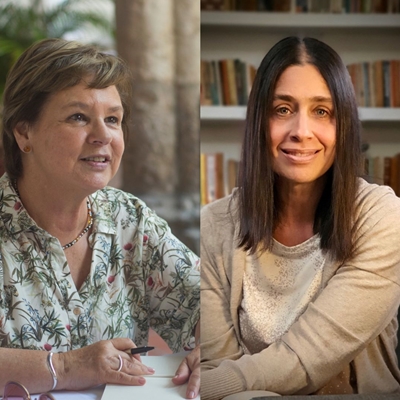
Event HFJ12
Camila Sosa Villada in conversation with Mercedes Posada
Universidad Tecnológica de Bolívar (sede Manga)
Read more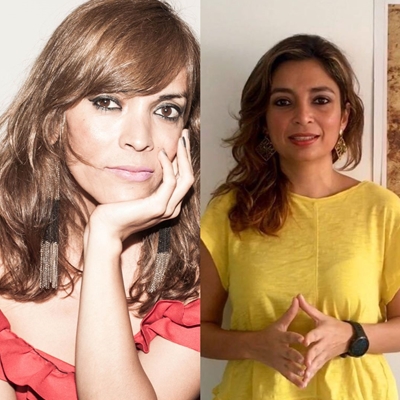
Event 30
Juan Gómez-Jurado in conversation with Juan Lozano
Todo muere
Centro de Convenciones (Auditorio Getsemaní)
Read moreThe journalist and writer Juan Gómez-Jurado (Spain) is one of the finest thriller writers in his language, and a bestselling author whose work has been translated into over forty languages. His Red Queen trilogy has been made into a Prime series, and is one of the most popular Spanish-language series of all time. Todo muere, the last part of his trilogy Todo arde from the narrative universe of the acclaimed Reina Roja series, and a long-awaited ending to one of the most read and loved contemporary sagas in the Spanish language. In conversation with Juan Lozano.
With the support of the Embassy of Spain in Colombia
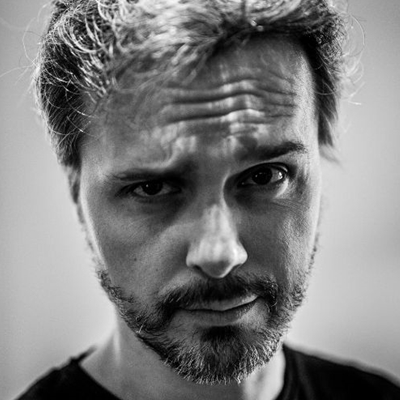
Event 31
Yurieth Romero and Gilbert Shang Ndi in conversation with Paula Moreno Zapata
Manos Visibles event: our own references. Africa-Latin America
Centro de Convenciones (Salón Barahona)
Read moreTwo Afro-descendant writers, Yurieth Romero from Santa Marta and Gilbert Shang Ndi from Cameroon, will engage in a conversation with Paula Moreno Zapata, author of Soñar lo Imposible and El Poder de lo Invisible, about the essential integration of literature produced by Black people into contemporary literary canons. Yurieth Romero is the first Black writer from the Caribbean to publish a book, Las Visitantes, under the Alfaguara imprint of Penguin Random House. On the other hand, Gilbert Shang Ndi is a prominent author and Ph.D. in Comparative Literature, recognized for his research on topics such as African dictatorship novels, the poetics of the body, violence in literature, visual culture, and cyber literature. In this conversation, both writers will share their work and personal perspectives, and discuss how the invisibility of Afro-descendant authors in Latin America contributes to one of the deepest roots of inequality in the region. Additionally, they will explore how the African continent has emerged in the past decade as a literary powerhouse in the global arena.
With the support of Manos Visibles

Event 32
Jennifer Ackerman in conversation with Rosie Boycott
Wise owls
Teatro Adolfo Mejía
Read moreJennifer Ackerman (United Kingdom), the author of The Genius of Birds, returns with her new book, What an Owl Knows. The tales of the world are full of owls: for different cultures it has represented wisdom, mystery, or even presages of death. Popular culture also features the owl, which appears in the Harry Potter and Winnie the Pooh stories. These birds, which are able to turn their heads a full 180°, have a very special anatomy, but why are these creatures of the night so famous? This new book is a mixture of natural history treatise, a study of behaviour, and a look at the symbolism of these extraordinary animals. In conversation with Rosie Boycott.
Jennifer Ackerman will participate in this event digitally.
Simultaneous interpretation from English to Spanish available
With the support of Fontur

Event 33
Olimpia Palmar, Gustavo Ulcué Campo and Ricardo Villafañe in conversation with Weildler Guerra
South to North conversations: managing our territory
Centro de Formación de la Cooperación Española (patio)
Read moreWe talk about the territory and its community management, about the link between the culture and history of peoples, with their places of residence, and the need for self-management shared among inhabitants. With Olimpia Palmar (Colombia), Wayuu expert in human rights, communicator and activist; Gustavo Ulcué Campo (Colombia), Nasa film producer and activist; and Ricardo Villafañe (Colombia) Arhuaco Indigenous leader, advocate, and promoter of environmental protection. They will talk to Weildler Guerra.
With the support of Open Society Foundations
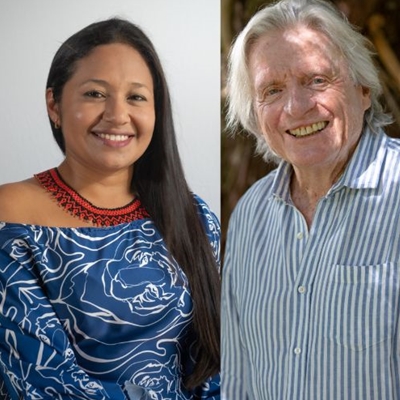
Event 34
Txell Feixas and Laura Ortiz Gómez in conversation with Gloria Susana Esquivel
Women who take the reins
Palacio de la Proclamación (Auditorio Juan José Nieto)
Read moreWhat happens when women challenge power? In conversation with Gloria Susana Esquivel, two writers explore, through fiction and non-fiction respectively, examples of cooperation among women. Txell Feixas (Spain) has been a correspondent in the Middle East, based in Beirut, for the Corporació Catalana de Mitjans Audiovisuals and she is the author of the book Mujeres valientes, which deals with the struggles of women during the conflicts of the Middle East. She also received the 2024 National Journalism Prize for her book Aliadas. Laura Ortiz Gómez (Colombia) is the author of Indócil, a work of history that explores the “broom strike”, a popular movement that occurred in Argentina in 1907 when women, inhabitants of the conventillos of Buenos Aires, refused to pay their rent and took to the streets.
With the support of the Ramón Llull Institute

Event 35
Rafael Navarro de Castro in conversation with José Zuleta
Centro de Formación de la Cooperación Española (Salón Mutis)
Read moreWith the support of Acción Cultural Española, AC/E
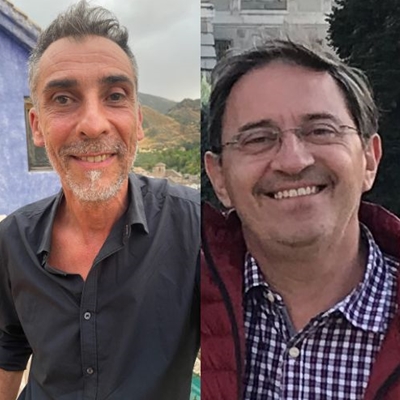
Event HFJ13
Cristina Rivera Garza in conversation with David Lara
Universidad de Cartagena, Claustro de San Agustín (Biblioteca)
Read more
Event HFJ14
Jorge Eljaik, Lusdary Martínez and Katherinne Vidal talk to Daniela Pabón and Óscar Daniel Campo
Why publish what we write? Creative processes in university spaces
Universidad de Cartagena, Claustro de la Merced (Salón Eréndira)
Read more
Event HFJ15
Lecture and poetry performance with María Buelvas and Luisa Ochoa, together with Katherine Osorio
Universidad Tecnológica de Bolívar (sede Manga) - Explanada Auditorio Jorge Tahua
Read more
Event HFJ16
Bocafloja in concert
Universidad de Cartagena, Claustro de San Agustín
Read morePULEP CODE: BGA795
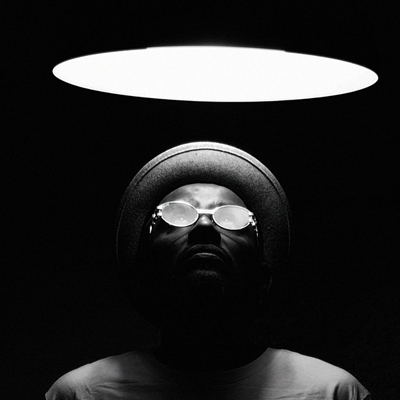
Event 36
Salman Rushdie in conversation with Juan Gabriel Vásquez
Centro de Convenciones (Auditorio Getsemaní)
Read moreSalman Rushdie (India / United Kingdom / United States) is a major figure in contemporary literature and a very prolific author. His Midnight’s Children won the Booker Prize in 1981, and was deemed the best of all winners on the 25th and 40th anniversaries of the prize’s creation. He has been the President of PEN America, a member of the UK’s Royal Society of Literature, is a French Knight of the Order of Arts and Letters, and was named one of the 100 most influential people in the world by Time in 2023. On 12 August 2022, he suffered an attack that nearly killed him, 30 years after the proclamation of a fatwa following the publication of The Satanic Verses. The author relates these events, his recovery, and gives a powerful reflection on literature, art and freedom of expression in his most recent publication, Knife. He will talk about this and his most recent novel, Victory City, with Juan Gabriel Vásquez.
Simultaneous interpretation from English to Spanish available
Sponsored by SURA and Bancolombia
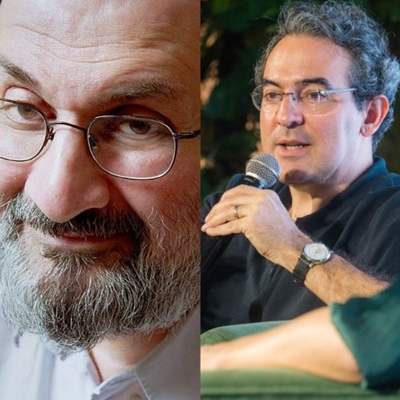
Event 37
Wolfram Eilenberger in conversation with Óscar Guardiola-Rivera
Centro de Convenciones (Salón Barahona)
Read moreWolfram Eilenberger (Germany) is a philosopher, journalist and writer. His passion is the application of philosophical ideas in everyday life, whether politics, culture or sport. Founding Editor of Philosophie Magazin, he has published Time of the Magicians. The Invention of Modern Thought 1919-1929, and now presents Geister der Gegenwart, an exploration of the thought of Theodor W. Adorno, Susan Sontag, Michel Foucault and Paul Feyerabend. The book follows the path of a set of ideas that are essential for our times: from dismantling the myth of blind faith, to the progress of conspiracy theories; from sexual liberation to the most reductionist wokeness. In conversation with Óscar Guardiola-Rivera.
Simultaneous interpretation from English to Spanish available

Explore All Genres
- 20 Questions
- Afrodescendencias
- South to South
- Architecture
- Art
- Arts & Culture
- Biography
- Children
- Culture
- Economics
- Education
- Equality
- Fiction
- Film
- Gender
- Globalisation
- History
- Human Rights
- Indigenous Cultures
- Journalism
- Literature
- Maths
- Memoir
- Music
- Nature & Environment
- Philosophy
- Photography
- Podcast
- Poetry
- Politics
- Science
- Technology
- Thinking
Partner for Latin America

Principal Sponsors



Government Partner

